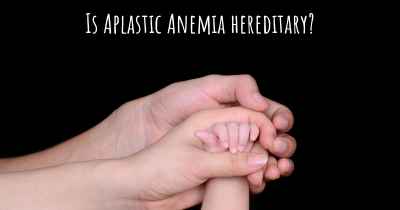8
Which advice would you give to someone who has just been diagnosed with Aplastic Anemia?
See some advice from people with experience in Aplastic Anemia to people who have just been diagnosed with Aplastic Anemia

Advice for Someone Diagnosed with Aplastic Anemia
Receiving a diagnosis of aplastic anemia can be overwhelming and distressing. However, it is important to remember that you are not alone in this journey. With the right support, treatment, and lifestyle adjustments, you can effectively manage your condition and lead a fulfilling life. Here are some essential pieces of advice to help you navigate through this challenging time:
- Seek Expert Medical Care: Consult with a hematologist or a specialist in bone marrow disorders who can guide you through your treatment options. They will help you understand the severity of your condition, recommend appropriate therapies, and monitor your progress.
- Educate Yourself: Take the time to learn about aplastic anemia, its causes, symptoms, and available treatments. Understanding your condition will empower you to make informed decisions about your health and actively participate in your treatment plan.
- Follow Your Treatment Plan: Adhere to the treatment regimen prescribed by your healthcare provider. This may include medications, blood transfusions, immunosuppressive therapy, or even a bone marrow transplant. Consistency and compliance with your treatment plan are crucial for managing aplastic anemia effectively.
- Build a Support Network: Reach out to your loved ones, friends, and support groups to create a strong support network. Sharing your feelings, concerns, and experiences with others who understand what you are going through can provide immense emotional support and help alleviate the stress associated with your diagnosis.
- Take Care of Your Emotional Well-being: Aplastic anemia can be emotionally challenging. It is essential to prioritize your mental health. Consider seeking counseling or therapy to help you cope with the emotional impact of your diagnosis. Engaging in activities that bring you joy and relaxation, such as hobbies, exercise, or meditation, can also contribute to your overall well-being.
- Adopt a Healthy Lifestyle: Maintaining a healthy lifestyle is crucial for managing aplastic anemia. Eat a balanced diet rich in fruits, vegetables, whole grains, and lean proteins to provide your body with essential nutrients. Avoid exposure to infections by practicing good hygiene, washing your hands regularly, and avoiding crowded places during flu seasons.
- Monitor Your Blood Counts: Regularly monitor your blood counts as advised by your healthcare provider. This will help track your progress and detect any changes or complications promptly. Be vigilant about any signs of infection, bleeding, or unusual fatigue and report them to your doctor immediately.
- Stay Informed About New Research: Keep yourself updated on the latest advancements in aplastic anemia research and treatment options. This knowledge can help you have informed discussions with your healthcare provider and explore potential new therapies or clinical trials that may be beneficial for your condition.
- Advocate for Yourself: Be an active participant in your healthcare journey. Ask questions, voice your concerns, and communicate openly with your healthcare team. Remember, you are your own best advocate, and your input is valuable in making informed decisions about your treatment and care.
- Live Life to the Fullest: While aplastic anemia may require certain adjustments, it should not define your entire life. Pursue your passions, set goals, and engage in activities that bring you joy. Surround yourself with positivity and embrace the support of your loved ones as you navigate through this journey.
Remember, aplastic anemia is a manageable condition, and with the right medical care, support, and lifestyle choices, you can lead a fulfilling life. Stay positive, stay informed, and never hesitate to reach out for help when needed.
Diseasemaps
I would highly suggest contacting a reputable, highly knowledgeable, experienced hematologist. Meet with him or her ASAP. Take the advice of the hematologist, do your research about the illness, seek assistance from friends and family, reach out to supportive people and support groups. Stay informed, follow your treatment regime to a "t" and stay positive.
Posted Mar 17, 2017 by Jacqueline 1152
find and listen to knowledgeable specialists
Posted Mar 17, 2017 by John 2150








